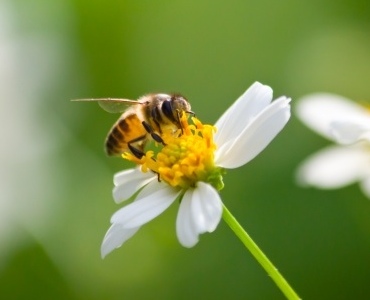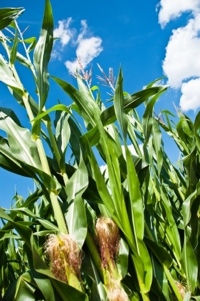
Ontario plans to reduce use of neonicotinoid-treated seeds
Food in Canada
Business Operations Regulation Fruit & Vegetables Grain Farmers of Ontario Ontario Ministry of Agriculture Food and Rural Affairs pollinator healthOMAFRA and the Ontario Ministry of the Environment and Climate Change say the reduction will protect pollinator health, but not everyone agrees with the motion

Toronto – The Ontario Ministry of Agriculture, Food and Rural Affairs (OMAFRA), and the Ontario Ministry of the Environment and Climate Change have announced measures to protect pollinator health.
 Both ministries have set a goal of reducing by 80 per cent the number of acres planted to corn and soybeans using neonicotinoid-treated seed by 2017.
Both ministries have set a goal of reducing by 80 per cent the number of acres planted to corn and soybeans using neonicotinoid-treated seed by 2017.
To many farm groups, reports RealAgriculture.com, it amounts to a de-facto ban.
The ministries say the federal Pest Management Regulatory Agency has found a link between planting corn and soybean seeds treated with the agricultural insecticide and bee deaths in Ontario.
Pollinator health is vital to crops such as apples, cherries, peaches, plums, cucumbers, asparagus, squash, pumpkins and melons.
The ministries’ approach is expected to improve pollinator health, and ensure a healthy ecosystem and agricultural sector. It’s also expected to reduce the over-winter honeybee mortality rate to 15 per cent by 2020.
The province says it will consult on a proposal to reduce the use of neonicotinoid-treated corn and soybean seed. If it’s approved, new rules on the use of neonicotinoids will be in place by July 1, 2015, in time for the 2016 agricultural planting season.
To read the discussion paper, click here. The discussion on pollinator health is open for comment for more than 60 days on Ontario’s Environmental and Regulatory Registries. Consultation sessions will be held in December this year and in January 2015 to seek input from industry, researchers, organizations and individuals.
Grain farmers
The Grain Farmers of Ontario says it’s “confounded” by the announcement, which it says “flies in the face of numerous efforts and investments made by grain farmers across the province over the past two years to mitigate risks to bee health.”
Grain Farmers of Ontario says it has invested in ongoing multi-year research projects to mitigate risks to bee health associated with neonicotinoids. In 2014, all 28,000 grain farmers across the province followed new best management practices and used a new fluency agent to minimize possible seed treatment exposure to bees. This year, says the organization, 70 per cent less bee deaths were reported.
“A reduction at this level puts our farmers at a competitive disadvantage with the rest of the country and the rest of the North America,” says Barry Senft, CEO of Grain Farmers of Ontario.
“It will mean smaller margins for grain farmers and could signal the transition away from family farms to large
multi-national farming operations that can sustain lower margins.”
In recent meetings with all levels of government, the Grain Farmers of Ontario says it has expressed its concerns over these regulations. A restriction at the 80 per cent level is comparable to a total ban on the product, which the Conference Board of Canada estimates will cost Ontario farmers more than $630 million annually in lost revenue.
Friends of the Earth
Friends of the Earth says Ontario is “on the right track” with the restriction on neonicotinoids.
“We congratulate Ontario for its decision to control these systemic neurotoxin pesticides,” says Beatrice Olivastri, CEO, Friends of the Earth Canada.
“Clearly, Ontario is reading the science and has decided it’s time to act to protect our pollinators.”
Quick facts
According to the Ontario Provincial Winter Loss Survey, in 2013-14, bee deaths in Ontario reached their highest recorded level at 58 per cent.
Scientific evidence shows that neonicotinoids harm bees by disrupting their ability to feed, navigate and reproduce, making them more susceptible to bacterium, virus, or other microorganisms that can cause disease.
Bees and other pollinators are responsible for pollinating roughly 13 per cent of agricultural crops in Ontario (crops worth about $897 million), and support $26 million annually in honey production.
In Ontario we have both wild and managed bee populations. Both make a significant contribution to Ontario’s agriculture and environment. In addition to bees, wild pollinators include butterflies, flies, beetles, and other insects.
Ontario’s agri-food sector employs 760,000 individuals and contributes $34 billion each year to the province’s economy.
Print this page